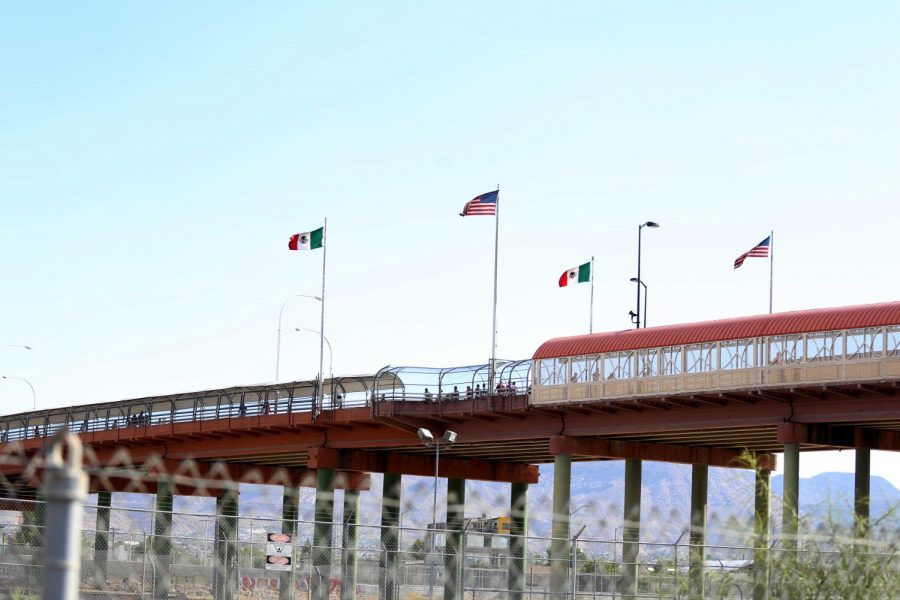UTEP President, Dr. Diana Natalicio announced early Monday evening in a memorandum a protocol for UTEP faculty, staff and students who may be experiencing delays along the U.S.-Mexico border.
On Friday, March 29 President Donald Trump stated he will close parts or all of the southern border as early as next week. Which could include the port of entry from El Paso and Cd. Juárez.
To help deal with the influx of migrants seeking asylum, Customs and Border Protection (CBP) officers are being pulled away from working at the ports of entry.
Monday, it was brought to the university’s attention that students, faculty and staff were experiencing long wait times between two to five hours driving and two hours walking to cross the border.
“All of us at UTEP are dismayed by the negative impact of these CBP actions on our community. We fully understand that the current delays at the bridges, and the possible closure of the border, are disrupting many lives, and adding to the stress and anxiety associated with efforts to cope with them,” Natalicio said in a memo. “UTEP is deeply committed to creating a supportive climate that minimizes the negative impact on our students, faculty and staff, both now and in the event of a complete border closure.”
UTEP has established a response team led by Catie McCorry-Andalis, Associate Vice President and Dean of Students, and Sandy Vasquez, Associate Vice President for Human Resources, to provide support and institutional resources for students, staff and faculty who are impacted by the current situation.
According to the memo, the team is coordinating efforts across campus to offer the following solutions to students, staff and faculty:
- Working with faculty that they understand the issues being faced by the students who suffer delays at the international bridge, providing faculty the support to administrator coursework through blackboard or email for students, which would enable the student to complete assignments while in Cd. Juárez.
- Temporarily providing on-campus housing for anybody from UTEP who is unable to cross from El Paso to their homes in Juárez.
- Providing virtual counseling for those unable to come to campus.
- Working with on-campus employers and employers around the community who employ students on Curricular Practical Training, to ensure that they understand the delays occurring at the bridges and, should it be necessary, the implications of border closure on students’ access to their workplaces.
“We value each and every member of our UTEP community and deeply regret the impact of the current situation on you and your family and friends,” Natalicio said in a memo. “Please be assured that we are monitoring this situation very closely, and that we will do all within our power to ensure that you continue to have the opportunity to achieve your educational and professional goals at UTEP.”
For more information, a website has been created, www.utep.edu/irc, that will provide updates on the port of entry, resources and support services for faculty, staff and students.










